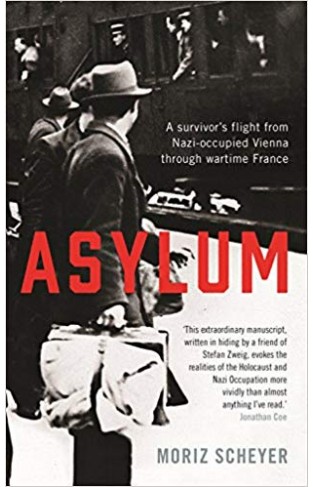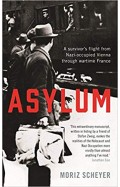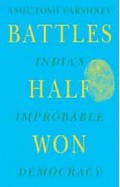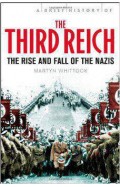Asylum: A survivor’s flight from Nazi-occupied Vienna through wartime France
By: Moriz Scheyer
-
Rs 2,897.50
- Rs 5,795.00
- 50%
You save Rs 2,897.50.
Due to constant currency fluctuation, prices are subject to change with or without notice.
In 1943, hidden by the Resistance in a French convent, Moriz Scheyer began drafting an account of his wartime experiences: a tense, moving, at times almost miraculous story of flight and persecution in Austria and France.
As arts editor of Vienna's principal newspaper before the German annexation of Austria, Scheyer had known the city's great artists, including Stefan Zweig and Gustav Mahler, and was himself an important literary journalist. In this book he brings his distinctive critical and emotional voice to bear on his own extraordinary experiences: Vienna at the Anschluss; Paris immediately pre-war and under Nazi occupation; the 'Exodus'; two periods of incarceration in French concentration camps; contact with the Resistance; a failed attempt at escape to Switzerland; and a dramatic rescue followed by clandestine life in a mental asylum run by Franciscan nuns.
Completed in 1945, Scheyer's memoir is remarkable not just for the riveting events that it recounts, but as a near-unique survivor's perspective from that time.
In 1943, hidden by the Resistance in a French convent, Moriz Scheyer began drafting an account of his wartime experiences: a tense, moving, at times almost miraculous story of flight and persecution in Austria and France.
As arts editor of Vienna's principal newspaper before the German annexation of Austria, Scheyer had known the city's great artists, including Stefan Zweig and Gustav Mahler, and was himself an important literary journalist. In this book he brings his distinctive critical and emotional voice to bear on his own extraordinary experiences: Vienna at the Anschluss; Paris immediately pre-war and under Nazi occupation; the 'Exodus'; two periods of incarceration in French concentration camps; contact with the Resistance; a failed attempt at escape to Switzerland; and a dramatic rescue followed by clandestine life in a mental asylum run by Franciscan nuns.
Completed in 1945, Scheyer's memoir is remarkable not just for the riveting events that it recounts, but as a near-unique survivor's perspective from that time.
Asylum: A survivor’s flight from Nazi-occupied Vienna through wartime France
By: Moriz Scheyer
Rs 2,897.50 Rs 5,795.00 Ex Tax :Rs 2,897.50
Zubin Mehta: A Musical Journey (An Authorized Biography)
By: VOID - Bakhtiar K. Dadabhoy
Rs 892.50 Rs 1,050.00 Ex Tax :Rs 892.50
The Origins of Political Order From Prehuman Times to the French RevolutioN
By: Francis Fukuyama
Rs 4,045.50 Rs 4,495.00 Ex Tax :Rs 4,045.50
Battles Half Won : Indias Improbable Democracy
By: Ashutosh Varshney
Rs 3,565.75 Rs 4,195.00 Ex Tax :Rs 3,565.75
Curzon's India: Networks of Colonial Governance, 1899-1905
By: Dhara Anjaria
Rs 845.75 Rs 995.00 Ex Tax :Rs 845.75
A Brief History of The Third Reich: The Rise and Fall of the Nazis - Paperback
By: Martyn Whittock
Rs 1,695.75 Rs 1,995.00 Ex Tax :Rs 1,695.75
US Policy in Afghanistan and Iraq
By: Seyom Brown & Robert H. Scales
Rs 2,375.75 Rs 2,795.00 Ex Tax :Rs 2,375.75
The Peacemakers: India and the Quest for One World
By: Manu Bhagwan
Rs 722.50 Rs 850.00 Ex Tax :Rs 722.50
The Invisible Bridge: The Fall of Nixon and the Rise of Reagan
By: Rick Perlstein
Rs 1,827.50 Rs 2,150.00 Ex Tax :Rs 1,827.50
No similar books from this author available at the moment.
No recently viewed books available at the moment.
Zubin Mehta: A Musical Journey (An Authorized Biography)
By: VOID - Bakhtiar K. Dadabhoy
Rs 892.50 Rs 1,050.00 Ex Tax :Rs 892.50
Asylum: A survivor’s flight from Nazi-occupied Vienna through wartime France
By: Moriz Scheyer
Rs 2,897.50 Rs 5,795.00 Ex Tax :Rs 2,897.50














-120x187.jpg?q6)





-120x187.jpg?q6)







